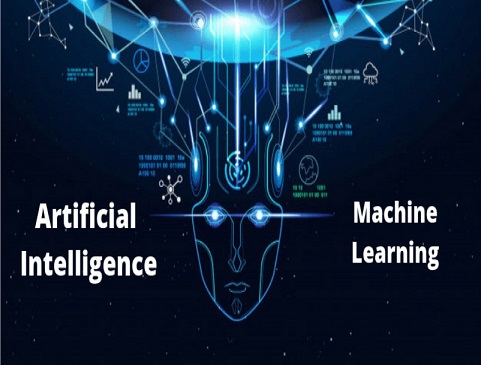Intake - 30

Artificial Intelligence and Machine Learning
Bachelor of Technology in Artificial Intelligence and Machine Learning (B.Tech AI & ML) is an undergraduate degree program that combines the fields of artificial intelligence and machine learning. This program is designed to equip students with the necessary knowledge and skills to understand, develop, and apply AI and ML technologies in various industries.
The program emphasizes both theoretical foundations and practical applications. Students gain hands-on experience through programming assignments, projects, and laboratory sessions, where they implement AI and ML algorithms using programming languages such as Python and R. They also explore real-world datasets and learn how to preprocess data, train models, evaluate performance, and deploy AI and ML solutions.
Eligibility Criteria
All those candidates who have passed 10+2 examination from a Board recognized or established by Central/State Government through a legislation and a member of Council of Boards of School Education (COBSE), New Delhi with Physics / Mathematics / Chemistry / Computer Science / Electronics / Information Technology / Biology / Informatics Practices / Biotechnology / Technical Vocational subject / Agriculture / Engineering Graphics / Business Studies.
OR
Those candidates who have passed minimum 03 years Diploma examination from Punjab State Board of Technical Education & Industrial Training, Chandigarh or Sant Longowal Institute of Engineering and Technology, Longowal (SLIET), or any such examination from any other recognized State Board of Technical Education with atleast 45% marks (40% in case of candidates belonging to reserved category) subject to vacancies in the First Year, in case the vacancies at lateral entry are exhausted.
Programme Educational Objectives (PEO)
PEO1: Lead Their Career in Different Professional Roles in Reputed Industries and Solve Problems by Applying the Principles of Computer Science, Mathematics, Artificial Intelligence, Machine Learning, and Scientific Investigation to Provide Industry Accepted Solutions using the Latest Technologies
PEO2:Demonstrate Effective Communication, Engage in Team Work, Exhibit Leadership Skills, Ethical Attitude, and Achieve Professional Advancement Through Continuing Education.
PEO3:Continue their Education in Leading Graduate Programs in Engineering & Interdisciplinary Areas to Emerge as Researchers, Experts, Educators & Entrepreneurs and Recognize the Need for and an Able to Engage in Continuing Professional Development and Life-long Learning.
Programme Specific Outcomes (PSO)
PSO1: Formulate And Build Optimised Solutions For Computationally Intensive Applications
PSO2: Use Tools and Techniques in Artificial Intelligence and Machine Learning for Solving Multidisciplinary Problems
Programme Outcomes (PO)
PO1:Engineering knowledge: Apply the knowledge of mathematics, science, engineering fundamentals, and an engineering specialization to the solution of complex engineering problems.PO2: Problem analysis: Identify, formulate, research literature, and analyze complex engineering problems reaching substantiated conclusions using first principles of mathematics, natural sciences, and engineering sciences.
PO3: Design/development of solutions: Design solutions for complex engineering problems and design system components or processes that meet the specified needs with appropriate consideration for the public health and safety, and the cultural, societal, and environmental considerations.
PO4: Conduct investigations of complex problems: : Use research-based knowledge and research methods including design of experiments, analysis and interpretation of data, and synthesis of the information to provide valid conclusions.
PO5: Modern tool usage: Create, select, and apply appropriate techniques, resources, and modern engineering and IT tools including prediction and modelling to complex engineering activities with an understanding of the limitations.
PO6: The engineer and society: Apply reasoning informed by the contextual knowledge to assess societal, health, safety, legal and cultural issues and the consequent responsibilities relevant to the professional engineering practice.
PO7: Environment and sustainability: Understand the impact of the professional engineering solutions in societal and environmental contexts, and demonstrate the knowledge of, and need for sustainable development.
PO8: Ethics: Apply ethical principles and commit to professional ethics and responsibilities and norms of the engineering practice.
PO9: Individual and team work: Function effectively as an individual, and as a member or leader in diverse teams, and in multidisciplinary settings.
PO10: Communication: Communicate effectively on complex engineering activities with the engineering community and with society at large, such as, being able to comprehend and write effective reports and design documentation, make effective presentations, and give and receive clear instructions.
PO11: Project management and finance: Demonstrate knowledge and understanding of the engineering and management principles and apply these to one’s own work, as a member and leader in a team, to manage projects and in multidisciplinary environments.
PO12: Life-Long Learning: Recognize the need for, and have the preparation and ability to engage in independent and life-long learning in the broadest context of technological change.